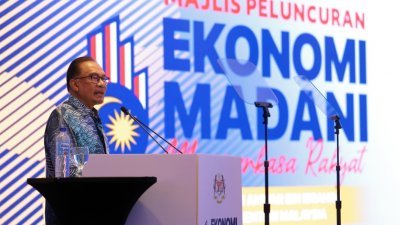13年前,中国最重要的社会科学智库,中国社会科学院对中国与世界其他国家的竞争排位进行了比较。中国社科院预计,到了2020年,中国才能跻入G20(20国集团)最具竞争力国家前五名。当时,中国社科院指出,中国要想成为仅次于美国的第二强国,还需要40年的时间。
该报告也警告,中国在高端人才、文化、教育、卫生、科技等领域的核心竞争力与排名不相匹配。报告指出,中国高端人才指数为美国的8.3%、日本的10%。在高等教育领域,中国的指数仅为欧盟的10%、美国的三分之一。
尽管2008年中国高等教育竞争力排名第四,但报告也强调大多数一流大学仍然在欧盟和美国。报告还指出,中国科技竞争力指数不到美国的三分之一。
自此,中国与西方发达国家的差距不断缩小。但中国领导层、知识分子和智库认识到,即使按照中国的标准,中国在某些领域仍然不是一个高度发达的国家,很多事情都可能出错。
中国新长征中的一个优势,在于其人民的团结和才干。普通民众对生活改善充满信心;以及中国善用科技人才以应对新的全球挑战的能力。
关于外部势力,特别是美国及其盟国对中国崛起的威胁和对抗的文已经写了有很多。这些分裂、分割和征服中国的努力将继续采取涉及地缘政治、经济和军事措施的战略和战术。“遏制”、“去风险”、“脱钩”、“确保遵守国际法治”等新战略和词汇不断演变出来和应用到中国身上。
重要的是,中国也明确划定了底线,在抗拒战争贩子将中国拖入武装冲突的挑衅行为同时,也使用正确、和平手段争取自己在世界上的合法地位,并与国际社会中反对美国主导的霸权单极秩序和世界体系的其他利益攸关方团结一致。
美国及其盟国将探究所有可能的突破点,以打破所谓的中国“长城”。但中国不必带头挑战美国及其盟国在世界大部份甚至所有领域的主导地位。
中国应该重点关注的一个关键领域是,汇集社会文化、环境和科学等多个领域的专家和领导人,以促进合作与交流,解决全球性问题。
脱钩须付出代价
因此,看到一些世界顶尖的数学家、物理学家和电脑科学家齐聚北京参加首届国际基础科学大会(ICBS)活动是令人鼓舞的。该大会汇聚了来自三个领域的专家,讨论、合作和探索数学、理论物理、理论电脑科学和信息科学的前沿问题。
除了探讨各自专业领域课题外,一些顶尖科学家也公开指出推动更多国际合作与交流的重要。与西方权力走廊中那些呼吁孤立中国、“消除风险”和脱钩的人相反,这些科学领袖知道科学无国界,他们反对美国目前在科技领域推动的脱钩行动,以及美国推动其盟友对中国采取类似的限制。出席大会的许多科学家也深知,针对中国的科技脱钩行动,也将使本国和世界其他国家付出高昂的代价。
正如荷兰国际关系研究所(Clingendael)中国中心高级研究员兼协调员高英丽所指出的:
中国是科学强国,在生物技术、5G和6G、纳米材料、电池等许多领域处于领先地位。根据澳洲战略政策研究所(ASPI)的数据,中国甚至在44项关键技术中的37项处于领先地位。荷兰需要中国的这些知识。
中国拥有大量自然科学领域的学生和研究人员,包括荷兰在内的世界各地都缺乏这方面的人才。忽视或排除这些中国科学家意味著我们将在这些技术领域日益落后……大规模地切断和中国建立科学联系,将严重损害我们在国际上的技术和创新地位。
此外,这也将进一步限制我们对中国发展的理解,中国是我们不能忽视的重要经济、政治和科学参与者。现在我们比以往任何时候都更需要了解中国并与中国合作。因此,脱钩是科学合作中最糟糕的选择……在中国拥有大量知识和经验的领域进行联合研究,例如癌症治疗、个性化医疗、循环经济和可持续发展,不仅有助于推动荷兰的科技进步,也有助于改善社会的福利。在其他领域,汇集中国和荷兰的高质量知识对于应对大规模全球挑战,也是至关重要的。
林德宜《中国:需漫长且团结新长征》原文:China: A Long and United New March Is Needed
13 years ago China’s foremost social science think tank, the China Academy of Social Sciences (CASS), compared the country’s competitive standing with other nations of the world. CASS estimated that China could be among the top five most competitive countries of the G20 only by 2020. It also noted that it would be another 40 years before China could emerge as the second most powerful nation next to the US.
The same report warned that China’s core competitiveness could not match its ranking when it comes to high-level talents or in the fields of culture, education, health, science, and technology. It pointed out that China’s index of high-level talents stands at 8.3% of that of the US and 10% of that of Japan. In the field of higher education, it was reported that China’s index was only 10% of that of the European Union and one-third of the US. Though China ranked 4th in higher education competitiveness in 2008, it emphasized that most of the first-class universities are still in the EU and the US. The report also noted that the country’s science and technology competitiveness index is less than one-third of that of the US.
Since then, the gap between China and the developed countries of the West has narrowed. But within the country’s leadership, intelligentsia, and think tanks there is a recognition that even by its own standards, China is still not yet a highly developed country in some spheres and many things can go wrong.
The one key constant which is likely to prevail in China’s new long march is the unity and talent of its people; the sense of confidence among ordinary people that their lives have improved; and the country’s ability to harness its scientific and technological talent to meet new global challenges.
Resisting US Hegemony and a Unipolar World
Much has been written about the threats and opposition to China’s rise stemming from outside forces, notably the United States and its allies. These efforts to divide, fragment, and subjugate China will continue with strategies and tactics involving geopolitical, economic, and military measures. New strategies and vocabulary such as “containing”, “derisking”, “decoupling”, “and ensuring adherence to the international rule of law”, etc are continually being evolved and used.
It is important that China - while drawing its red lines clearly and resisting the provocative efforts of warmongers to draw China into armed conflict - fights for its rightful place in the world correctly, peacefully and in solidarity with other stakeholders of the international community that reject a US-led hegemonic unipolar order and world system.
The US and its allies will probe all possible weaknesses and seek to break down the so-called China wall. But China does not have to lead in challenging the US and its ally's dominance of world power in all or even most areas.
One key area that China should focus on is bringing together experts and leaders from multiple fields - socio-cultural, environmental, and scientific - with the goal of promoting cooperation and exchange and tackling global issues.
Hence it is encouraging to see some of the world's leading mathematicians, physicists, and computer scientists gathered in Beijing for the inaugural International Congress of Basic Science (ICBS) event. Presently ongoing, the event has brought together experts from three branches to discuss, collaborate and explore cutting-edge issues across mathematics, theoretical physics, theoretical computing and the information sciences.
Besides speaking on their own specialized area of expertise, some of the top scientists have spoken out in support of the importance of international collaboration and exchange. In contrast to those in the corridors of power in the West calling for the isolation of China and de-risking and decoupling, these leaders of science recognize that science knows no borders and they reject decoupling in the science and technology field as presently practiced by the US which is also pushing its allies to undertake similar restrictions against China. Many of these scientists present are also well aware that scientific decoupling targeted against China will also cost their own countries and the rest of the world dearly.
What China Decoupling Will Cost the Rest of the World
As noted by Ingrid D’Hooghe, Senior Research Fellow and Coordinator Clingendael China Centre,
China is a scientific powerhouse and a leading player in many fields, such as biotechnology, 5G and 6G, nano-materials and electric batteries. According to the Australian Strategic Policy Institute (ASPI), China is even leading in 37 out of 44 key technologies. The Netherlands needs this knowledge from China.
China has a large reservoir of students and researchers in natural science, of which there is a shortage worldwide, including in the Netherlands. Ignoring or excluding these Chinese scientists means that we will increasingly come to lag behind in technological sectors. … [C]utting our scientific links with China on a large scale will seriously damage our international position in technology and innovation. In addition, it will further restrict our understanding of developments in China, which is a key economic, political and scientific player that we cannot ignore. Now more than ever we need knowledge about and cooperation with China. Decoupling is therefore the worst of all options for scientific cooperation….Joint research in areas where China has a lot of knowledge and experience to offer, such as cancer treatment, personalised medicines and circular economy and sustainability, not only contributes to Dutch scientific progress but also to social welfare. In other areas, it is vital to bring together Chinese and Dutch high-quality knowledge to address global challenges on a large scale.
要看最快最熱資訊,請來Follow我們 《東方日報》WhatsApp Channel.


















